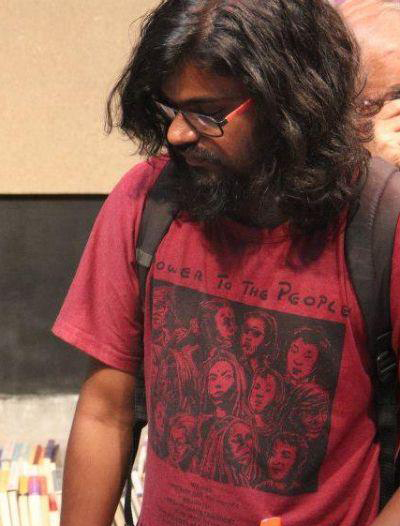Ankit Sharma set out to attend UC Santa Cruz because of its commitments to interdisciplinary research and social justice. The university’s educational values inspired him to make the long journey from Noida, India to Santa Cruz.
Sharma researches and teaches on issues related to global politics, development, social and labor movements, and gender inequalities. He is grateful to UCSC’s Sociology Department for allowing him conduct graduate research across a variety of disciplines. In 2021 he was awarded the Jessica L. Roy Memorial Award.
The Jessica L. Roy Memorial Award commemorates the work and legacy of Jessica Roy, whose work for women’s rights and water safety in Kenya is immortalized in a permanent endowment for graduate students focusing on an equitable distribution of natural resources, especially in the context of equity for women.
Sharma’s graduate research in gender inequality and global politics has earned him a past accolade from The Social Science Research Council for his dissertation “World(s) of Precarity: Place-making, time, and Labor struggles of informal workers in Delhi.”
Sharma’s work heavily depends on his work in India, which became difficult during the COVID-19 pandemic. The inability to do field research for the duration of the pandemic put a damper on his work schedule. With the help of the Jessica L. Roy Memorial Award, Sharma can build from a strong foundation as he works on his research on both sides of the planet.
“As an international student, I am generally supposed to be on a timeline and the award has provided critical support in a time when I have been figuring how to start/travel to my field to remain on track with things.”
Sharma credits UCSC with developing his interdisciplinary viewpoint, in ethnographic courses that have proved critical to his work in sociological studies. What especially stood out to Sharma in his education was how holistically engaged his peers were in the material: not only did he find eye-opening discussion and discourse in his graduate-level courses, but also in the conversations between the undergraduate students he taught as a TA.
“I have loved taking critical classes on ethnographies of work, movements, feminism, and many others,” Sharma said. “The amazing part is that such discussions don’t stop there and enter into spaces of discussion sections, while working as a TA, with undergraduates.”
Sharma’s fields of study, from gender inequality to equitable distribution, are as myriad as his goals for post-graduate work. After completing his degree, Sharma hopes to contribute to combatting the inequalities of the world alongside becoming a professor.
“I hope to continue researching and teaching on issues related to global politics, development, social and labor movements, and gender inequalities,” he said. “My ideal situation will be to have a combination of being full-time professor, policy work, and grassroots organizing.”



